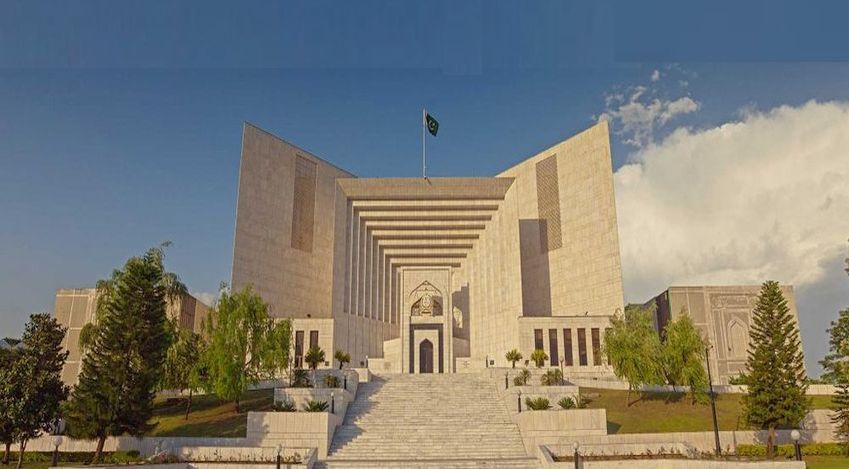Minor Discrepancies in Evidence did not warrant Acquittal but justify the reduction in Sentence --- Supreme Court of Pakistan
Islamabad 28-02-2025: The Supreme Court of Pakistan has commuted the death sentence of accused, convicted of a triple murder, to life imprisonment. The decision came after the Court found mitigating factors, including failure to prove motive, minor inconsistencies in the prosecution’s evidence, and the Appellant’s prolonged incarceration since 2005.
The accused was convicted for the murder of his sister, her husband, and their one-year-old daughter. The incident, which occurred in 2005 in District, was allegedly motivated by the Appellant’s disapproval of his sister’s marriage. The Trial Court sentenced him to death on three counts under Section 302(b) of the Pakistan Penal Code (PPC), a decision later upheld by the Lahore High Court (LHC) in 2013.
Following the dismissal of his appeal by the Lahore High Court, the Appellant filed [Jail Petition No. 285 of 2017] before the Supreme Court of Pakistan. Due to procedural delays and his imprisonment, the petition was filed after 13 years, prompting the Supreme Court of Pakistan to first examine whether the delay should be condoned.
The Court ruled that since the Appellant was in death row custody, he was dependent on the Superintendent of Jail, who failed to facilitate the timely filing of his appeal. The Supreme Court of Pakistan applied a liberal approach in condoning the delay, citing past precedents, including:
- Muhammad Bakhsh alias Muhammadi Vs. The State (1985 SCMR 72): Delay of 680 days condoned.
- Muhammad Nawaz Vs. The State (PLD 2002 SC 287): Delay of 145 days condoned.
- Mian Muhammad Nawaz Sharif Vs. The State (PLD 2009 SC 814): Justice should not be hindered by technicalities.
The Supreme Court of Pakistan reviewed the prosecution’s evidence and found that:
- The prosecution relied on Saif Ullah (PW-1) and Liaqat (PW-2), whose statements were deemed consistent and credible.
- The complainant later acknowledged reconciliation between the families, contradicting the alleged motive.
- Despite a delay in postmortem, the Court ruled that eyewitness accounts should be given preference, citing:
- Muhammad Iqbal Vs. The State (1996 SCMR 908): Ocular evidence trumps medical evidence if the former is reliable.
- Naeem Akhtar Vs. The State (PLD 2003 SC 396): Medical evidence cannot override eyewitness testimony.
The Court reaffirmed that substituting a real culprit in murder cases is rare, referencing Allah Ditta Vs. The State (PLD 2002 SC 52) and Muhammad Abbas Vs. The State (2023 SCMR 487).
Considering the absence of motive, inconsistencies in prosecution evidence, and the Appellant’s 19-year incarceration, the Supreme Court of Pakistan commuted the death sentence to life imprisonment on three counts.
- Death sentence converted to life imprisonment under Section 302(b) PPC.
- Compensation of Rs. 50,000 per deceased upheld under Section 544-A Cr.P.C..
- Benefit of Section 382-B Cr.P.C. granted, allowing time spent in custody to count towards the sentence.
This ruling reinforces key legal principles, including:
- Failure to prove motive weakens the prosecution’s case (Amir Muhammad Khan Vs. The State (2023 SCMR 566)).
- Eyewitness testimony remains paramount over medical evidence (Muhammad Iqbal Vs. The State (1996 SCMR 908)).
Minor discrepancies do not warrant acquittal but may impact sentencing (Ansar Ahmad Khan Barki (1993 SCMR 1660)).
Powered by Froala Editor








